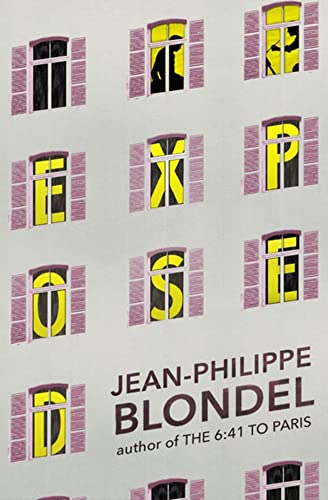Louis Claret is an English teacher in France. He's invited to a gallery showing when one of his former pupils, now a well known painter, has a retrospective and the novel opens with him reflecting on the fact that he's lost his passion for teaching and he's uncertain why he was included on the guest list for the event. When he meets his student, Alexandre Laudin, again they speak of nothing of any consequence and Claret's life continues on as it always has. But then Laudin gets in touch with him and the two kindle an odd sort of friendship, a kind of reliance on each other. And Laudin asks his former teacher to model for a planned triptych, not just to pose for a conventional portrait but to pose nude. This request exposes Louis not only in a physical sense but it exposes him emotionally too as he considers the request.
The novel is not sexual, exactly. The frisson is more in the lure of possibility and of seeing oneself (hopefully) admired through the eyes of another. It is in the potential for Laudin to uncover the essence of his old teacher, of Claret baring not just his flesh but his soul. The novel is narrated by Louis and it is deeply meditative and introspective. There are no big plot movements, only small events in the quiet reckoning Louis makes of his life in late middle age. He weaves the instances of his childhood, his now failed marriage, and his relationship with his adult daughters into the experience of being Laudin's subject and perhaps even his friend. There is an elegiac tone to the novel and Louis' life, as he exposes his past, has a sort of torpor to it. It is a subtle, ambiguous novel, one where the meaning, the art is continually exposed, layer by painstaking layer, even after the last page is finished. It is a short novel but one that leaves the reader wondering in the end just what all has, in fact, been exposed. The heart of Claret? Who's to say?
Thanks to the publisher for sending me a copy of the book to review.







No comments:
Post a Comment
I have had to disable the anonymous comment option to cut down on the spam and I apologize to those of you for whom this makes commenting a chore. I hope you'll still opt to leave me your thoughts. I love to hear what you think, especially so I know I'm not just whistling into the wind here at my computer.